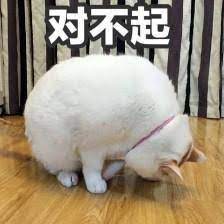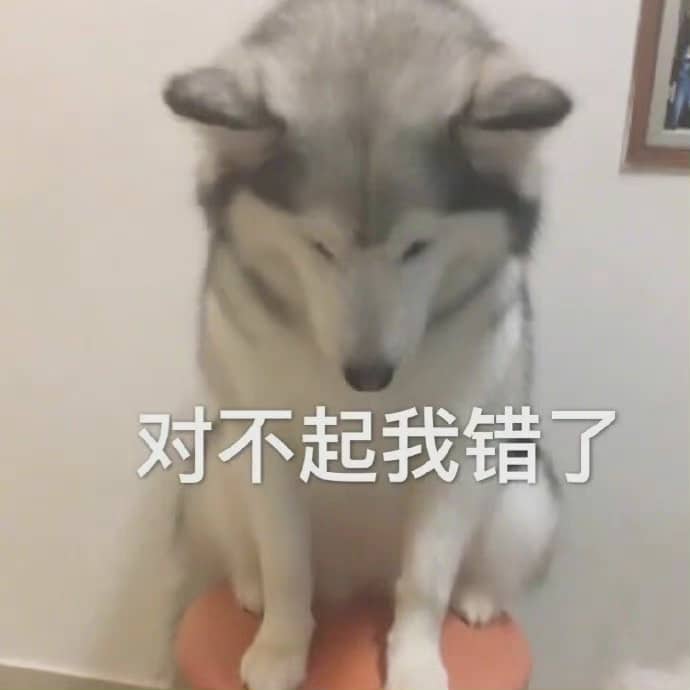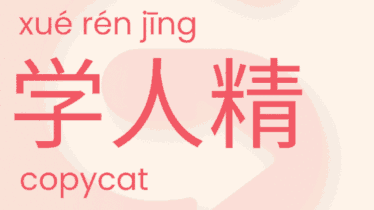‘Sorry in Chinese’ depends on how sorry you are
How to say sorry in Chinese depends on how sorry you are. Here are three ways to say sorry using Mandarin Chinese language.
If someone steps on your foot and says “sorry” flatly, you might be annoyed. If you and a friend are going to the movies and he arrives a bit late then says “I’m so sorry,” you might be a little surprised and tell him there’s no need to apologize. Do Chinese people do the same?
How to say sorry in Chinese?
- For basic apologies in Chinese, you can use:
1. 对不起 (duì bù qǐ)
2. 不好意思 (bù hǎo yì si)
3. 抱歉 (bào qiàn)
4. 我的锅(wǒ de guō)
- For formal apologies in Chinese, you can use
1. 非常抱歉 (fēi cháng bào qiàn)
2. 真诚道歉 (zhēn chéng dào qiàn)
3. 深表歉意 (shēn biǎo qiàn yì)
There are at least three ways to apologize in Chinese language and they are each used in certain contexts. The phrase “对不起 (duìbuqǐ)” which translates to sorry in English is the least used phrase by Chinese people. Is this perhaps why Chinese are thought to never apologize?
Sorry depends on how sorry you are
Here is the hierarchy for apologies in Chinese language: “对不起 (duìbuqǐ)” is the deepest apology, followed by “抱歉 (bào qiàn)”, and the mildest is “不好意思 (bù hǎo yì si)”. The degree of sorry also relates to how frequent the phrase is used in Chinese language. People rarely make serious mistakes so it’s rare to hear “对不起 (duìbuqǐ)”. It’s also considered to be very formal in Chinese. When you do something wrong that has a big impact on others, you must sincerely say “对不起 (duìbuqǐ)”.
Common apologies – 抱歉 (bào qiàn)
For common apologies, a normal ‘sorry’, people say “抱歉 (bào qiàn)”. For example, if you get stuck on the way to work and you’re a few minutes late, you should say “抱歉 (bào qiàn)”. If your colleagues invite you out to lunch but you don’t have time, you should say “抱歉 (bào qiàn)”.
Mild way of saying sorry – 不好意思 (bù hǎo yì si)
You can use “不好意思 (bù hǎo yì si)” for a mild apology or if you are bothering someone for help. When you ask for directions, you should start with “不好意思 (bù hǎo yì si)”. Walking down a crowded street, you can say “不好意思 (bù hǎo yì si), please let me pass.” At a store, if an item is not in stock, the salesman may say to you “不好意思 (bù hǎo yì si), our stock has run out.”
When you are super sorry – 对不起 (duì bù qǐ)
The deepest apology is “对不起 (duìbuqǐ)”, but if you really screwed up you can add: “对不起,我错了 (Duìbuqǐ, wǒ cuòle)”, and you’ll have to repeat it 50 times. And maybe buy some flowers!
Casual ways to say sorry in Chinese among friends, peers, or in relaxed settings – 我的锅(wǒ de guō)
The phrase “我的锅” (wǒ de guō) is an informal and colloquial way to express “my bad” or “my fault” in Chinese. It is commonly used in casual conversations among friends, peers, or in relaxed settings. Here are a few scenarios where you can use “我的锅” to express sorry:
- Making a Mistake: If you make a mistake or error that affects others, you can use “我的锅” to take responsibility and apologize. For example:
- “我把你的名字拼错了,我的锅。” (I spelled your name wrong, my bad.)
- “我弄错了时间,导致我们迟到了,我的锅。” (I got the time wrong, which made us late, my fault.)
- Forgetting Something: When you forget to do something or remember important information, you can use “我的锅” to apologize. For example:
- “我忘记买牛奶了,下次我会记住的,我的锅。” (I forgot to buy milk; I’ll remember next time, my bad.)
- “对不起,我忘了告诉你今天有会议,我的锅。” (Sorry, I forgot to tell you about the meeting today, my fault.)
- Causing Inconvenience: If your actions or decisions cause inconvenience to others, you can use “我的锅” to express sorry. For example:
- “抱歉,我提前关掉了电视,没意识到你还在看,我的锅。” (Sorry, I turned off the TV without realizing you were still watching, my bad.)
- “我的锅,我把你的手机弄丢了,我会赔偿的。” (My fault, I lost your phone; I’ll compensate you.)
The expression “我的锅” (wǒ de guō) originated from Chinese internet slang and has become a popular phrase in informal and casual conversations. To learn more, read our post 背锅.
how to express formal apologies in Chinese?
The phrases “非常抱歉” (fēi cháng bào qiàn), “真诚道歉” (zhēn chéng dào qiàn), and “深表歉意” (shēn biǎo qiàn yì) are more formal and sincere ways to express apologies in Chinese. Here are some scenarios where you can use these phrases to convey sorry:
- Professional Apologies:
- Apologizing for a mistake at work: “对于上次的错误,我非常抱歉,给您带来了麻烦。” (I’m very sorry for the mistake last time; it caused inconvenience for you.)
- Apologizing for a missed deadline: “真诚道歉,我没有按时完成任务,对给您的工作计划产生了影响。” (I sincerely apologize for not completing the task on time; it has affected your work schedule.)
- Apologizing for a miscommunication: “深表歉意,由于我的误解,产生了这次沟通上的困难。” (I deeply apologize; due to my misunderstanding, this communication difficulty arose.)
- Formal Situations:
- Apologizing to a superior: “非常抱歉,我的疏忽导致了这个问题的发生,我会尽快采取措施解决。” (I’m very sorry; my oversight led to this issue, and I will take measures to resolve it promptly.)
- Apologizing to a client or customer: “真诚道歉,我们公司对您的不便深感抱歉,我们将竭尽全力解决此问题。” (I sincerely apologize; our company deeply regrets any inconvenience caused to you, and we will do our utmost to address this issue.)
- Apologizing in a formal event or ceremony: “深表歉意,由于不可抗力因素,我们无法按计划进行此次活动,我们为此向各位致以最诚挚的歉意。” (We express our deepest apologies; due to unforeseen circumstances, we are unable to proceed with this event as planned, and we sincerely apologize to all of you.)
- Personal Apologies:
- Apologizing to a friend: “非常抱歉,我知道我做错了,我希望你能原谅我。” (I’m truly sorry; I know I was wrong, and I hope you can forgive me.)
- Apologizing to a family member: “真诚道歉,我没有考虑到你的感受,我会努力改正我的错误。” (I sincerely apologize; I didn’t consider your feelings, and I will make an effort to correct my mistake.)
- Apologizing to a romantic partner: “深表歉意,我明白我伤害了你,我会尽一切努力修复我们的关系。” (I deeply apologize; I understand that I hurt you, and I will do everything I can to repair our relationship.)
How to express regret in Chinese?
To express regret in Chinese, you can say: 1. 后悔 (hòu huǐ) 2. 感到遗憾 (gǎn dào yí hàn)
The phrases “后悔” (hòu huǐ) and “感到遗憾” (gǎn dào yí hàn) both express a sense of regret or disappointment. Here’s what they mean and some scenarios where they can be used:
1. 后悔 (hòu huǐ) – “Regret”
– Meaning: It refers to the feeling of remorse or wishing that something had been done differently in the past.
– Scenario: You could use this phrase in situations such as:
– “我后悔没有好好学习中文” (I regret not studying Chinese properly).
– “他后悔没有接受那个工作机会” (He regrets not accepting that job opportunity).
2. 感到遗憾 (gǎn dào yí hàn) – “Feel regret” or “Feel sorry”
– Meaning: It indicates a sense of disappointment or sadness about a particular outcome or missed opportunity.
– Scenario: You could use this phrase in situations such as:
– “我感到遗憾无法参加你的生日派对” (I feel sorry that I can’t attend your birthday party).
– “他对自己的行为感到遗憾” (He feels regret for his actions).
These phrases are commonly used to express personal emotions and reflect on past actions or events. They can be used in various situations where you want to convey a sense of regret or disappointment about something that has happened or a missed opportunity.
How to respond to “I’m Sorry” in Chinese?
Here are a few simple ways to respond to “I’m sorry” in Chinese:不用道歉 (bù yòng dào qiàn); 没关系 (méi guānxi); 没事 (méi shì); 没什么 (méi shénme).
- 不用道歉 (bù yòng dào qiàn) – “No need to apologize.”
- This is a common and straightforward response to acknowledge the apology and reassure the person that there is no need to apologize further.
- Scenario: Your friend accidentally spills a few drops of coffee on the table while pouring. Friend: “I’m sorry about the coffee spill!” You: “不用道歉,没关系。我帮你擦一下。” (No need to apologize, it’s okay. I’ll clean it up.)
- 没关系 (méi guānxi) – “It’s okay.”
- This phrase is commonly used to express forgiveness or to let someone know that their apology is accepted.
- Scenario: Your friend accidentally steps on your foot. Friend: “Oops, I’m sorry for stepping on your foot!” You: “没关系,没受伤。不用担心。” (It’s okay, no harm done. Don’t worry.)
- 没事 (méi shì) – “It’s nothing.”
- This response conveys a similar meaning to “It’s okay” or “No problem” in English, indicating that the person’s apology is understood and not a significant issue.
- Scenario: Your classmate apologizes for borrowing your pen without asking. Classmate: “I’m sorry for using your pen without permission.” You: “没事,用完记得归还就行了。” (It’s nothing, just remember to return it after use.)
- 没什么 (méi shénme) – “It’s nothing.”
- This is another casual way to respond, similar to “It’s nothing” or “No big deal” in English. It shows that you are not greatly affected by the situation.
- Scenario: Your coworker apologizes for interrupting your conversation. Coworker: “Sorry for interrupting. I didn’t realize you were talking.” You: “没什么,没事的,我们可以继续聊。” (It’s nothing, it’s fine. We can continue our conversation.)
Say sorry in Chinese using meme:
Memes are a popular form of humor and using them to apologize can help create a lighthearted connection with the other person. It shows that you’re trying to make amends in a playful and relatable way. To find memes to express sorrow in chinese, you can simply search 对不起的表情包 in Google Image and Baidu Image.
The term “对不起的表情包” (duì bù qǐ de biǎo qíng bāo) means “memes to express sorrow”. It combines the phrase “对不起” (duì bù qǐ) meaning “I’m sorry” or “excuse me” with “表情包” (biǎo qíng bāo) meaning “memes”.
Be cautious when using memes to apologize, as the other person may not understand the context or find it appropriate for the situation.
But don’t worry! GoEast Mandarin has collected some memes for you. You can freely use the images provided in the article to express apologies, as using these images is unlikely to lead to misunderstandings. After all, who wouldn’t love cute little cats and dogs?


Cultural Considerations when saying sorry in Chinese
In Chinese culture, there are two important cultural considerations when it comes to saying sorry: “Saving Face” and “Maintaining Harmony.”
Saving Face:
Imagine you accidentally spill a drink on your friend’s new shirt at a gathering. Instead of making a big scene or drawing attention to the mistake, you can quietly apologize to your friend, perhaps even offering to help clean the stain without making a fuss. By doing so, you’re helping your friend save face and maintaining a harmonious atmosphere.
“Saving Face” refers to the importance of preserving one’s reputation, dignity, and avoiding embarrassment. In Chinese culture, people often strive to avoid public humiliation or loss of face. When saying sorry, it’s important to consider the other person’s feelings and try not to make them feel embarrassed or humiliated.
Maintaining Harmony:
Let’s say you accidentally break a vase at your neighbor’s house. Instead of becoming defensive or blaming someone else, you can sincerely apologize and express your regret. You may offer to replace the vase or help with the repair. By showing genuine remorse and taking responsibility for the situation, you contribute to maintaining harmony and fostering a positive relationship with your neighbor.
“Maintaining Harmony” is about promoting a peaceful and cooperative relationship among individuals. It emphasizes the importance of resolving conflicts and maintaining good relations with others. When saying sorry, the focus is on restoring harmony rather than dwelling on who is right or wrong.
Remember, in Chinese culture, it’s not just the words you use but also the sincerity and respect behind them that matter.
By considering “Saving Face” and “Maintaining Harmony,” you can navigate apologies in a culturally appropriate manner, fostering positive interactions and understanding with others.







